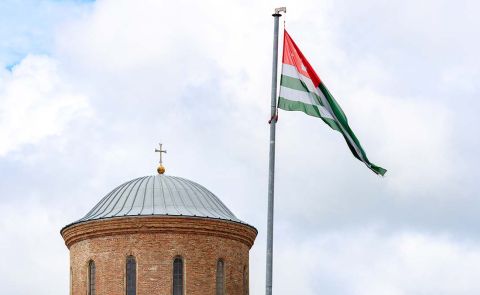
Council of Europe's Human Rights Report on Georgia

Dunja Mijatović, the Council of Europe's Commissioner for Human Rights, issued her report during her visit to Georgia in February 2022 to assess the condition of human rights and provide recommendations for the LGBTI community, religious minorities, and the fields of labour and the environment. While praising Georgia's environmental protection laws and efforts to bring the country into compliance with international standards, the Commissioner urged officials to guarantee meaningful and transparent public participation in the design, implementation, and monitoring of environmental policies at the national, regional, and local levels. In this context, she cited legal precedent from the European Court of Human Rights that emphasises the value of transparent stakeholder participation in all phases of decision-making processes when it comes to projects with an environmental effect. Commissioner Mijatović stated that government agencies must raise the calibre of environmental impact evaluations. She urged officials to enhance public understanding, education, and awareness of problems relating to environmental preservation and human rights, including specialised training for certain professional groups such as judges, in her overall message.
The Commissioner also commended Georgia for its labour reform efforts and urged policymakers to eliminate current inequalities by implementing a minimum wage in accordance with global standards, ensuring equitable access to maternity leave, and creating clear rules for overtime work. It was emphasised that the government must endeavour to ensure that laws are enforced properly, especially by giving the Labor Inspectorate the tools it needs to conduct appropriate inspections of labour rights, safety, and anti-discrimination requirements. The Commissioner urged officials to stay alert and step up efforts to further enhance worker safety conditions, particularly in areas like manufacturing, mining, and construction, including through sector-specific actions when necessary.
Concerning non-discrimination, the Commissioner mentioned the inclusion of sexual harassment as a form of discrimination and the extension of the anti-discrimination rule to pre-contractual relationships. She emphasised that authorities must continue to educate the public about sexual harassment and the institutions in place to combat it through campaigns and professional training. According to the report, efforts should be made to combat unfair gender stereotypes, which have an effect on women's career choices, prospects, and opportunities. According to the study, this requires monitoring and addressing gender wage disparities.
Moreover, the Commissioner welcomed efforts to align legal and institutional frameworks with international standards, but she also made note that LGBTI people continue to face pervasive discrimination in the fields of education, work, healthcare, and social services, particularly due to shortcomings in the implementation of the existing legal provisions. She asked the Georgian government to urgently address their persistent inability to protect LGBTI people from hate crimes and discourse in a similar vein. She proceeded by stating that a new Human Rights Action Plan must be prepared in conjunction with the LGBTI community, organisations, and civil society and must include time-bound, measurable indicators for addressing challenges. Due to the severity and effect of violence and hate crimes, Commissioner Mijatovićhighlighted that authorities must fight impunity for significant human rights abuses against the LGBTI population.
Last but not least, despite expressing concern that religious minorities continue to face significant challenges in practising their religion of choice in an environment free from violence and intimidation and that they continue to be subjected to discriminatory treatment in relation to their access to places of worship, the Commissioner approved of recent steps to develop law enforcement capacity to investigate and prosecute hate crimes based on religion or belief. Additionally, Mijatović suggested that the government engage with religious organisations and urged the government to continue enhancing its capacity to investigate and prosecute crimes motivated by religion and to condemn any acts of violence in this area. She mentioned the Muslim community and Jehovah's Witnesses in particular, and added that authorities must address concerns about law enforcement agencies and police not responding appropriately to attacks on religious minorities and occasionally working with the assailants.
See Also


BP Strengthens Presence in Azerbaijan’s Offshore Energy Sector

Netanyahu’s Letter to Aliyev: Mutual Trust, Solidarity Following Hamas Attacks, Facilitating Dialogue Between Israel and Türkiye

Azerbaijan Expands JF-17 Thunder Fighter Jet Order from 16 to 40 Units

EU Commissioner and NATO PA Warn Georgia Over Democratic Decline Amid Accession Challenges

